
[ad_1]
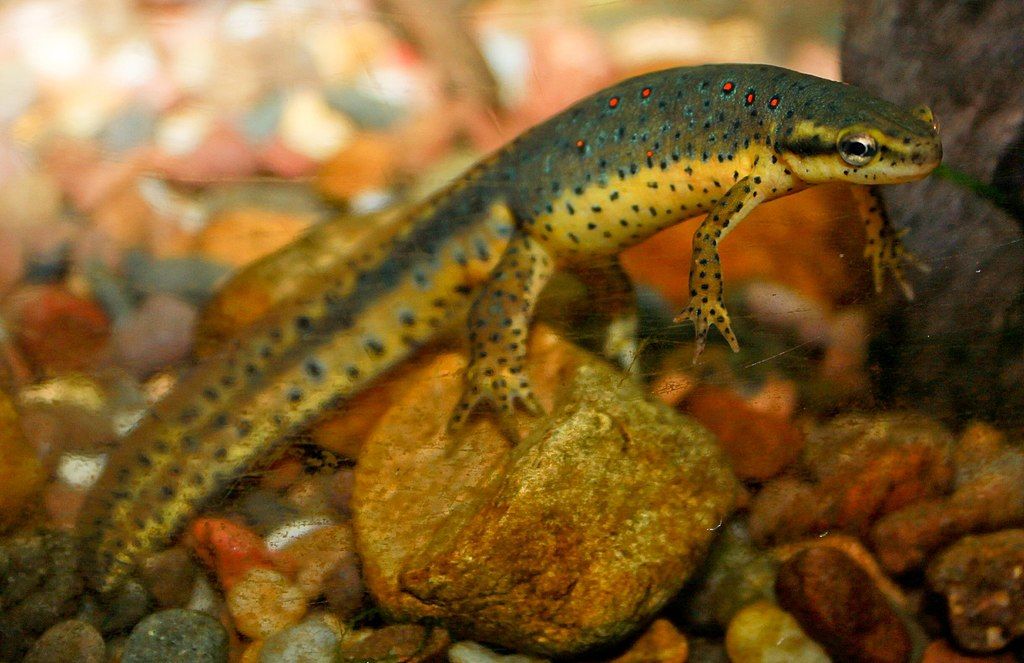
10 March 2024
Final Thursday I went in search of fairy shrimp(*) at Todd Nature Reserve and located amorous red-spotted newts (Notophthalmus viridescens) as an alternative. The newts attracted my consideration as a result of I had by no means seen adults earlier than, not to mention their courtship.
If you assume “red-spotted newt” you in all probability visualize the crimson eft, the juvenile terrestrial, dry-skinned section that lasts 1-3 years. Since red-spotted newts can stay as much as 15 years this section isn’t a excessive proportion of its lifetime, however it’s unforgettable.
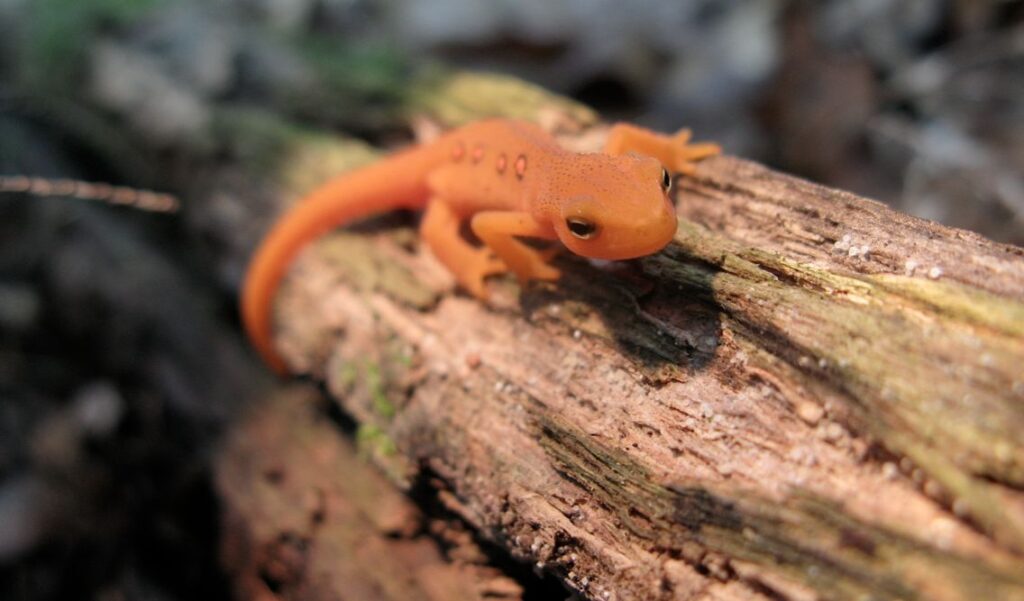
Purple efts wander fearlessly overland as a result of their brilliant orange shade and crimson spots, outlined in black, are warning to predators: “Don’t eat me! You’ll remorse it.”
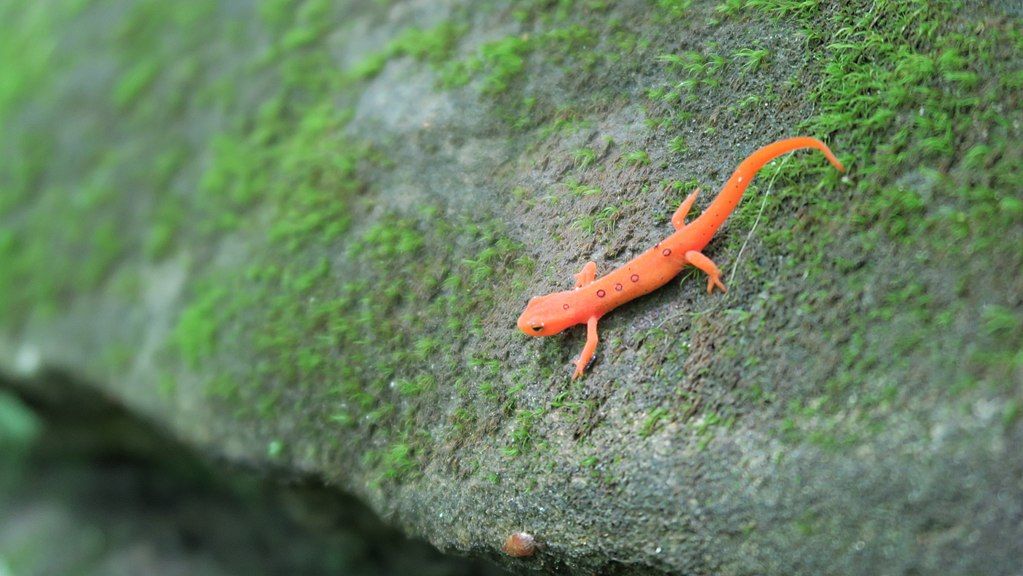
The pores and skin of juveniles and adults secretes tetrodotoxin (TTX), the identical neurotoxin present in pufferfish that causes paralysis and dying.
In line with Wikipedia, TTX “can enter the physique of a sufferer by ingestion, injection, or inhalation, or by way of abraded pores and skin.” However this hasn’t stopped anybody from holding red-spotted newts. Apparently this exercise is simply superb.
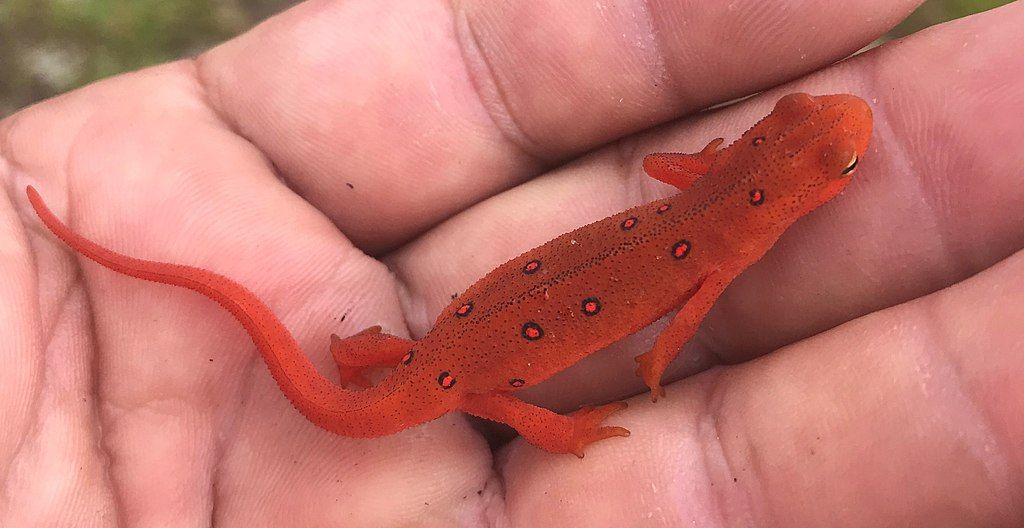
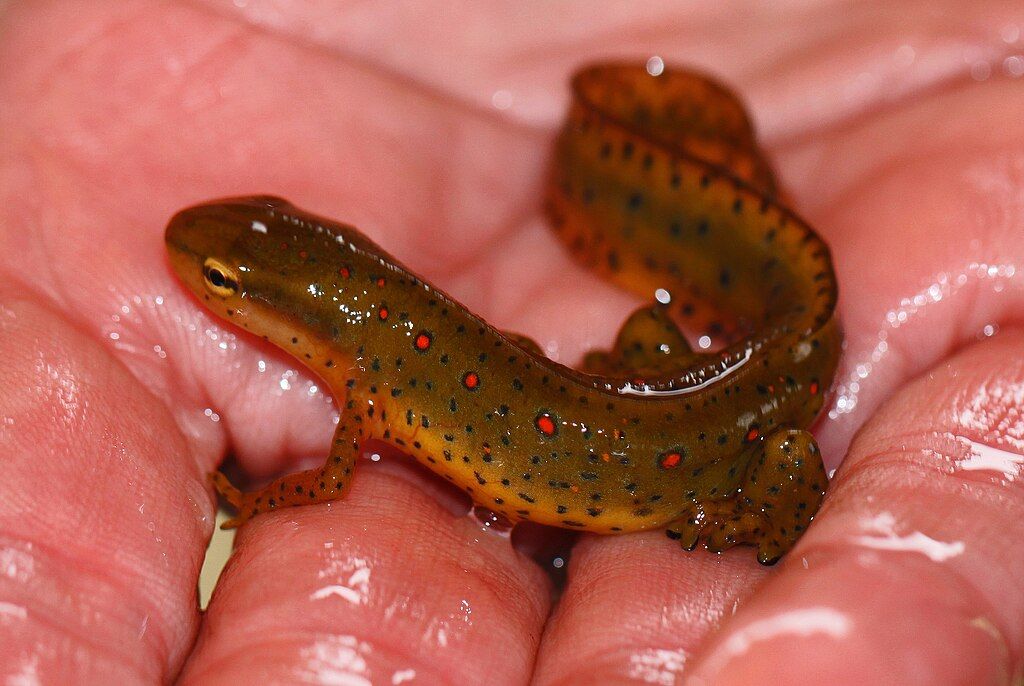
Thankfully …
Poisonings from tetrodotoxin have been nearly solely related to the consumption of pufferfish.” … [In North America there is] at the least one report of a deadly episode in Oregon when a person swallowed a rough-skinned newt (Taricha granulosa) on a dare.
The crimson spots are a warning. They’re additionally an attractant.
Courtship in newts is fascinating. The male will lure and entice the feminine together with his many crimson spots and wiggling tail, which releases pheromones (specialised chemical substances). The male, together with his hind legs, will grasp the feminine simply behind her forelimbs after which rub his chin alongside her snout simply previous to exterior fertilization.
— Connecticut Dept of Power and Environmental Safety: Purple-spotted newt
She likes his crimson spots. He embraces her.
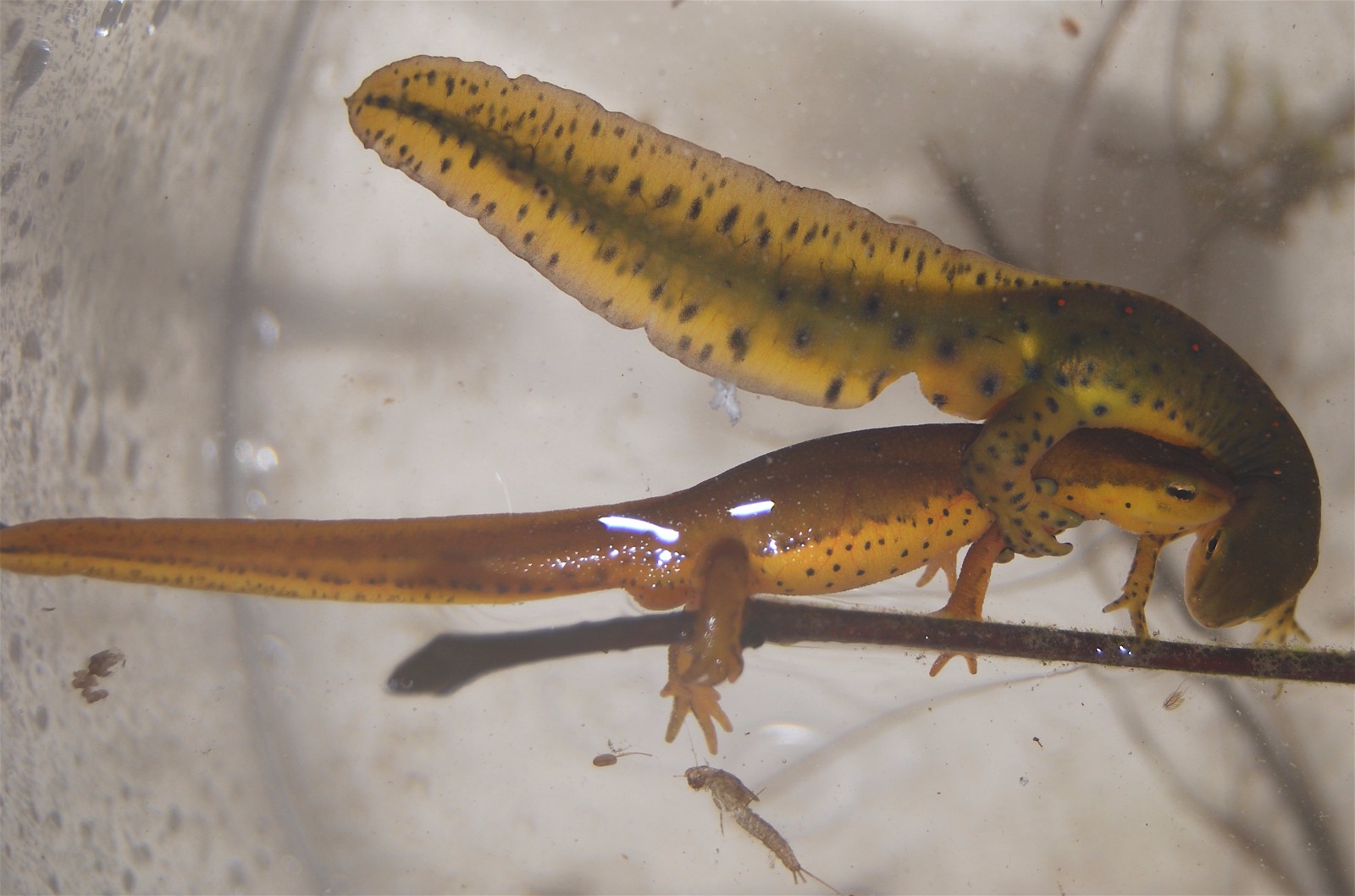
It’s very candy to see this in Spring.
(credit are within the captions)
(*) p.s. Click on right here to find out about fairy shrimp.
[ad_2]